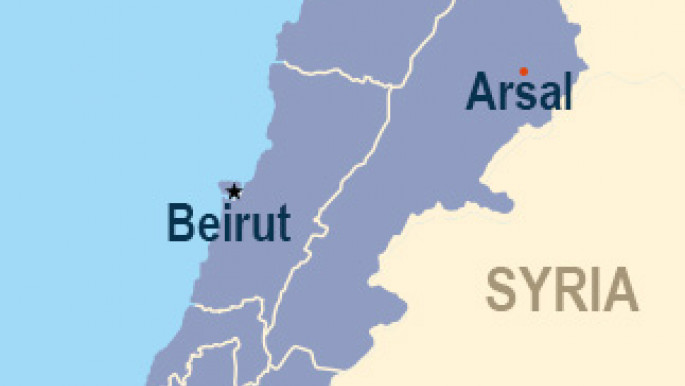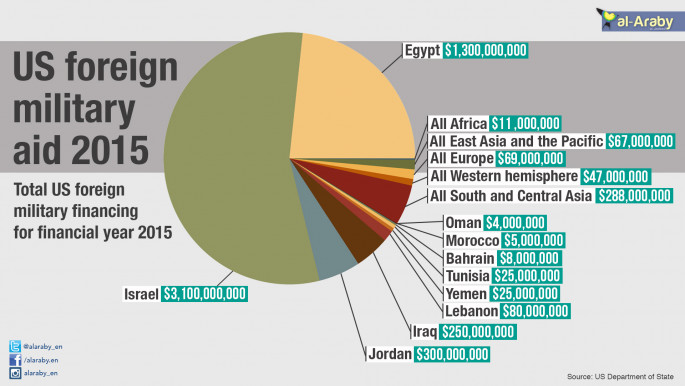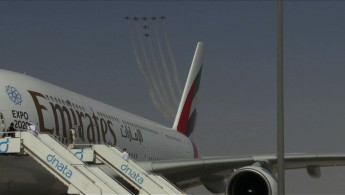Lebanon goes on Saudi spending spree at Dubai airshow
Lebanon's air force is bolstering its counter-insurgency capabilities with the purchase of six A-29 Super Tucano turboprop attack planes, Brazil's Embraer has announced.
The deal includes logistics support as well as a complete training system for Lebanese air force pilots and mechanics, said the aerospace company on Monday.
"The selection of the A-29 by the Lebanese Air Force is a great testament to the superiority of the Super Tucano and its ability to meet the challenges of the operating theatre in the Middle East," said Jackson Schneider, president and CEO of Embraer Defence and Security.
The sale of the six units, which reportedly retail for around $14 million each, are to be built at Embraer's plant in Jacksonville, Florida. The deal was approved by the US State Department in June, the Brazilian company said.
The A-29 Super Tucano is equipped with capabilities for 70mm rockets, air-to-air missiles and laser-guided missiles, making it a popular option for militaries looking for light attack craft, reconnaissance and close air support for ground troops.
The company did not disclose the total value of the deal, but early reports put the figure at around $462 million, including logistics and training packages.
The Lebanese air force has no other fixed-wing attack aircraft, and has in the past used converted helicopters to perform close air support operations.
Lebanese air force sources expect the first plane to be delivered by January 2017.
 |
|
The US has provided the Lebanese army with more than $1 billion in military assistance over the past eight years, and last year Saudi Arabia announced a $3 billion plan to provide the Lebanese army with French-made weapons.
Foreign military aid has increased to Lebanon in the past few years, as the country faces increased threats along its border with Syria from militant groups such as the Islamic State group (IS, formerly ISIS) and the Nusra Front.
The Lebanese army has been engaged in frequent battles and has been striking militants on the outskirts of Arsal, a restive border town in eastern Lebanon.
IS and Nusra militants briefly overran Arsal in August 2014 before being driven out by the military.
In April, the army received the first batch of French weapons financed by the $3 billion Saudi arms grant.
Meanwhile, as the US recalibrates its strategy in Syria, it has identified increasing military air support to Lebanon as a key part of its solution.
At an October 30 meeting to announce the Pentagon's new strategy in Syria, a senior US defence official identified "reinforcing" Jordan and Lebanon as a key focus area for the next year.
 |
| Click to enlarge |
Dubai Airshow pivots to military buyers
There were other military purchases announced at the Dubai Airshow, including a $1.27 billion deal for upgraded Saab surveillance systems purchased by the United Arab Emirates.
This reflects a shift in focus at the biennial event this year from civil aviation to defence.
| Read more: UAE buys Saab spy planes in $1.27bn deal |
Saudi Arabia and the UAE have been leading a war in Yemen since March, against the country's Houthi rebels and are both also part of the US-led coalition bombing IS in Syria and Iraq.
Lockheed Martin, the world's largest military contractor, announced it had been awarded a $262.8 million contract by the US Air Force to service Saudi Arabia's F-15 sniper targeting system, search and tracking sensors and radar that allow for day and night low-level navigation.
Despite a fall in oil prices and subsequently lower revenue for Gulf countries, Saudi Arabia and the UAE are not expected to cut back on military spending in the coming few years, as geopolitics continues to drive industry spending.
| There were other military purchases announced at Dubai Airshow, including a $1.27 billion deal signed by the UAE |
The Saudi kingdom and its rival, Iran, are backing opposite sides of the war in Syria, and support opposing political groups in Lebanon and Bahrain.
In Yemen, Iran has given political support to the Shia rebels, though it denies Saudi accusations that it has armed the rebels.
Compared with the 2013 airshow, which included announcements of $140 billion in Boeing and Airbus orders by four major Gulf carriers, this year's event has largely been a chance for Gulf carriers to showcase their new planes, and for international businesses to meet potential aviation and aerospace clients in the region.
Qatar Airways CEO Akbar al-Baker, whose company placed orders worth $19 billion for 54 Boeing 777s at the last Dubai Airshow, said his airline did not need to make another major aircraft purchase after the recent buying spree.
"Buying airplanes is not buying groceries in a supermarket. We have to order at one time, long-term, and this is exactly what we did two years ago and now we don't have any more need," he told The Associated Press.
The biennial Dubai Airshow, which runs until Thursday, is taking place at the emirate's newest airport, Al-Maktoum International.





 Follow the Middle East's top stories in English at The New Arab on Google News
Follow the Middle East's top stories in English at The New Arab on Google News
![Israeli forces ordered bombed Gaza's Jabalia, ordering residents to leave [Getty]](/sites/default/files/styles/image_330x185/public/2176418030.jpeg?h=a5f2f23a&itok=_YGZaP1z)

